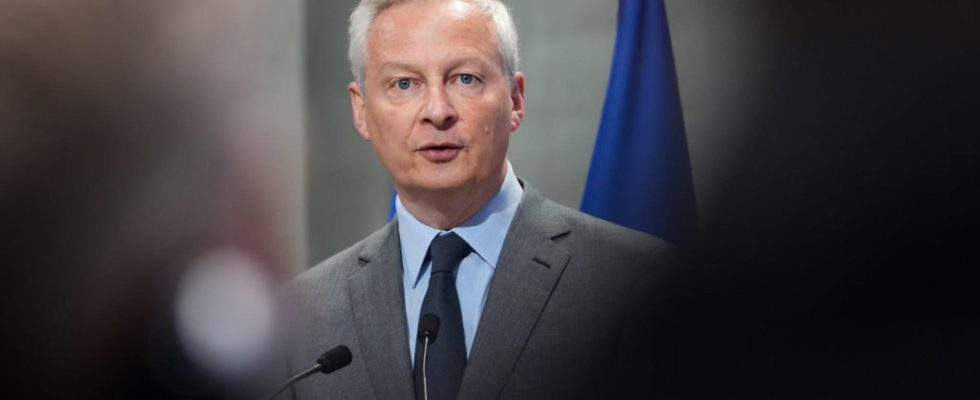Bloomberg/Bloomberg via Getty Images
Bruno Le Maire, here at the inauguration of the gigafactory Automotive Cells Company (ACC) in Douvrin (Pas-de-Calais), May 30, 2023.
ECONOMY – The executive intends to reaffirm its budgetary seriousness. The government indicated on Monday June 19 that it had identified “at least 10 billion euros in savings” to enable France to redress accounts degraded by successive crises, in particular by cutting health spending and tax benefits for fuel.
After having escaped the caudine forks of the agency S&P Global, which maintained the French credit rating, the executive wants to turn the page on the expensive support measures of the “whatever it takes” in the face of health and energy crises.

“Now that we are back to normal, who would understand that we continue to spend so much while these two major crises (…) are behind us? »declared the Minister of the Economy Bruno Le Maire, opening the Assizes of Public Finances in Bercy. “Our collective duty now is to protect our nation against debt”he added.
Organized in Bercy on his initiative and that of his colleague in charge of Public Accounts Gabriel Attal, in the presence of Prime Minister Élisabeth Borne, these meetings follow the annual reviews of State, local authority and social administration expenditure, launched a few months ago.
However, they are shunned by the three main associations of local elected officials, who disagree with the analysis of the situation.

In order to reduce the debt and the public deficit until 2027, according to a more ambitious trajectory presented in April, “we have identified, in particular with our first review of public expenditure, at least 10 billion euros in savings”underlined Bruno Le Maire.
No austerity
These savings will have to be found on health, by fighting against the explosion of sick leave and ” drifts “ drug spending, he said.
Housing aid with the abolition of the Pinel system and the overhaul of the zero-rate loan (PTZ), for a saving of two billion euros in the long term, as well as support for employment in this period of low unemployment are also in the sights of the government.

“Companies have never had such difficulty recruiting. However, we continue to massively support employment. When the unemployment rate goes down, the cost of employment aid must go down”insisted the minister, citing learning and personal training account.
Another target, the tax advantages on fuels enjoyed by certain professions such as road hauliers or farmers (non-road diesel), while France is embarking on the shift to energy transition. They will be phased out by 2030, with support to enable these professions to make this shift.
The objective is to reduce France’s heavy debt to 108.3% of GDP in 2027 (compared to 111.6% at the end of 2022), which ranks it on the side of the poor European students, and to bring it below the European objective of 3% the public deficit (4.7% at the end of 2022).

To return to the nails, the government refuses any increase in taxes. “We are not proposing austerity or angelism: we are proposing responsibility”said Bruno Le Maire.
End of energy shield
The government is also counting on the end of the energy shield, the gains from reforms such as pensions or unemployment insurance, full employment or even economic growth which it anticipates to be more dynamic, after a sudden brake in 2023.
These measures are deemed all the more necessary as the economic environment is getting tougher.
Suspended during the Covid, European budgetary rules will apply again next year and the sharp rise in interest rates is significantly increasing the debt burden, which could become the main item of State expenditure.

Already, the executive has multiplied the announcements in recent weeks. It thus froze an additional 1% of the credits of the 2023 budget (1.8 billion euros) which will be partially cancelled, according to Bruno Le Maire, and asked the ministries to generate 5% savings, excluding salaries, in 2024 in particular for finance the energy transition.
But between refusal to increase taxation and social tension in the face of high inflation, the enterprise of controlling expenditure promises to be delicate. Especially after a painful pension reform and without an absolute majority in the National Assembly.
The recent promise of a tax reduction of 2 billion euros for the middle classes and the new revaluation of the salaries of civil servants testify to the difficulty of tightening the screw.
See also on The HuffPost :

